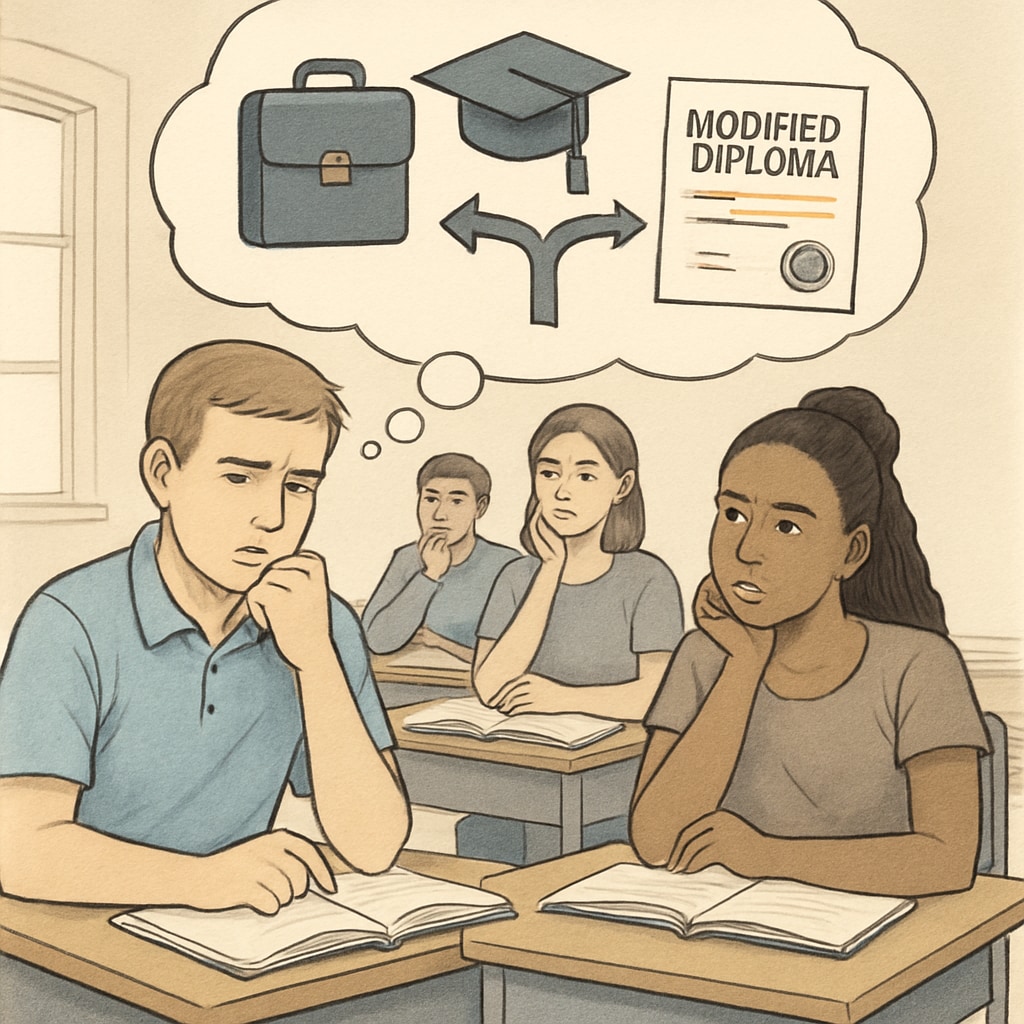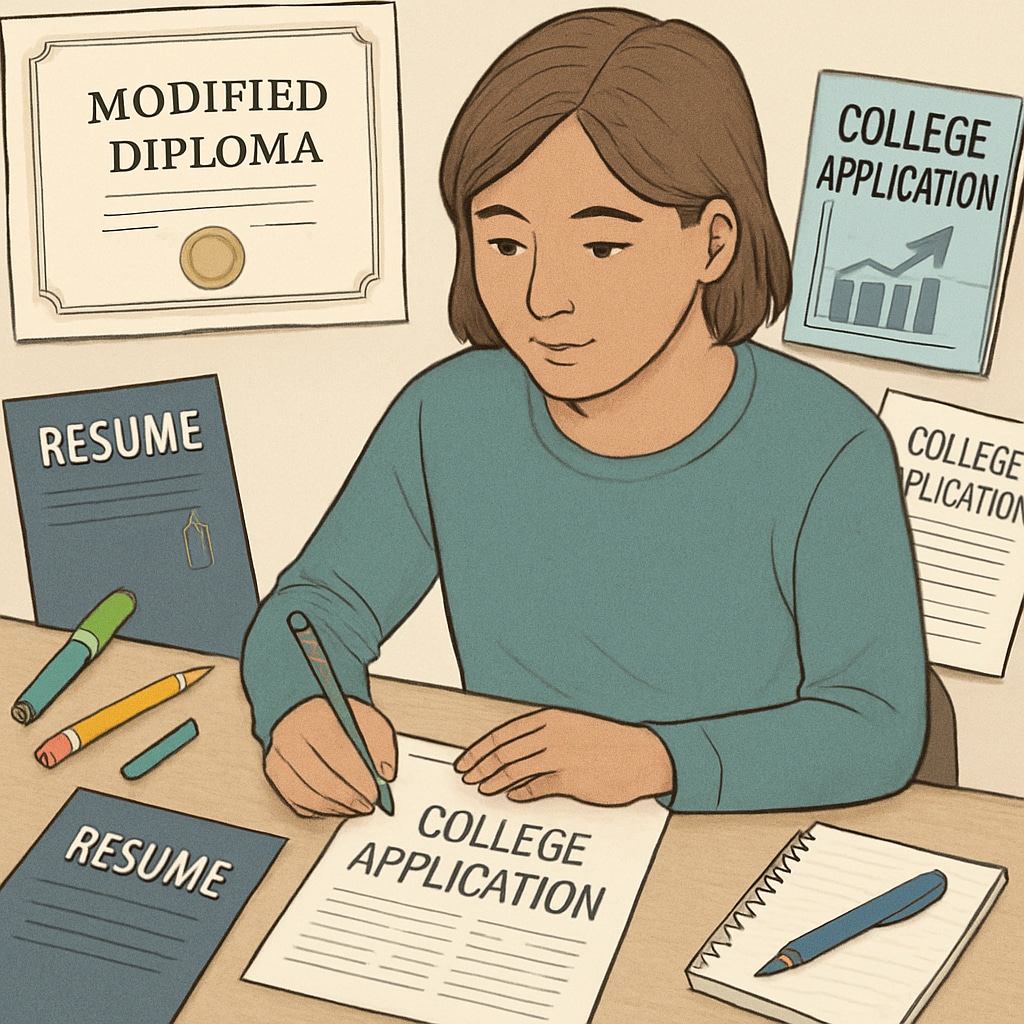The decision to pursue a modified high school diploma often comes with mixed emotions. Although it provides an alternative path to graduation, the limitations attached to this credential can leave students reflecting on their choices with regret. Whether it stems from missed academic opportunities or the perception of being less competitive in higher education or job markets, these feelings are valid but not insurmountable. In this article, we’ll explore the implications of a modified high school diploma, examine the psychological impact of graduation regret, and offer actionable strategies for moving forward.
Understanding the Modified High School Diploma
A modified high school diploma is designed for students who face unique academic challenges or require adjustments to standard graduation requirements. While it allows for a sense of accomplishment and the recognition of effort, it may not hold the same weight as a traditional diploma in certain scenarios. For example, some colleges or employers might view it differently, potentially limiting opportunities for advancement. This distinction can contribute to feelings of regret, especially if students feel they could have achieved more under different circumstances.

The Emotional Impact of Graduation Regret
Regret is a common response when individuals perceive their decisions as less than optimal, particularly in education. For students with a modified diploma, this regret can stem from comparing themselves to peers, encountering barriers in higher education applications, or facing limited career prospects. These emotions can be challenging to navigate, especially during formative years when self-esteem and identity are still developing.
However, it’s important to recognize that regret is not inherently negative. It can serve as a powerful motivator for self-improvement and growth. By identifying the root causes of regret, students can begin to reframe their experiences and focus on building a future that aligns with their goals and aspirations.

Practical Solutions for Moving Forward
While a modified high school diploma may present challenges, it is by no means an end to opportunities. Here are practical steps students can take to address limitations and move forward:
- Further Education: Explore alternative pathways such as community college, vocational training, or certification programs. Many institutions value skills and effort over diploma types.
- Skill Development: Focus on acquiring specific skills in areas of interest. Online courses, internships, and workshops can enhance employability.
- Networking: Build professional connections through social platforms, career fairs, or mentorship programs. Recommendations and relationships can often outweigh formal credentials.
- Self-Reflection: Use regret as a learning tool. Reflect on past choices to identify strengths and areas for improvement.
- Resilience: Cultivate a mindset that embraces challenges. Success is often determined by persistence and adaptability rather than initial qualifications.
Taking these steps can help students redefine their futures while mitigating the emotional weight of prior decisions. The journey to success does not follow a single path, and alternative routes can lead to equally fulfilling outcomes.
Reframing Regret as an Opportunity
For students and families grappling with the implications of a modified diploma, one of the most important lessons is that setbacks are temporary. Regret can be transformed into a catalyst for growth and change. By focusing on long-term goals and taking proactive steps, individuals can overcome perceived limitations and build meaningful lives.
In addition, society is increasingly recognizing diverse pathways to success. Employers and educators are placing greater emphasis on qualities such as grit, creativity, and adaptability, which often shine through in individuals who have faced and overcome challenges.
Ultimately, the modified diploma represents a unique chapter in a student’s journey—a chapter that, with the right mindset and tools, can lead to a rewarding and impactful future.
Readability guidance: This article uses short paragraphs, clear lists, and active voice to enhance accessibility. Transition words such as “however” and “in addition” ensure smooth flow. Students can find actionable insights throughout the text.


